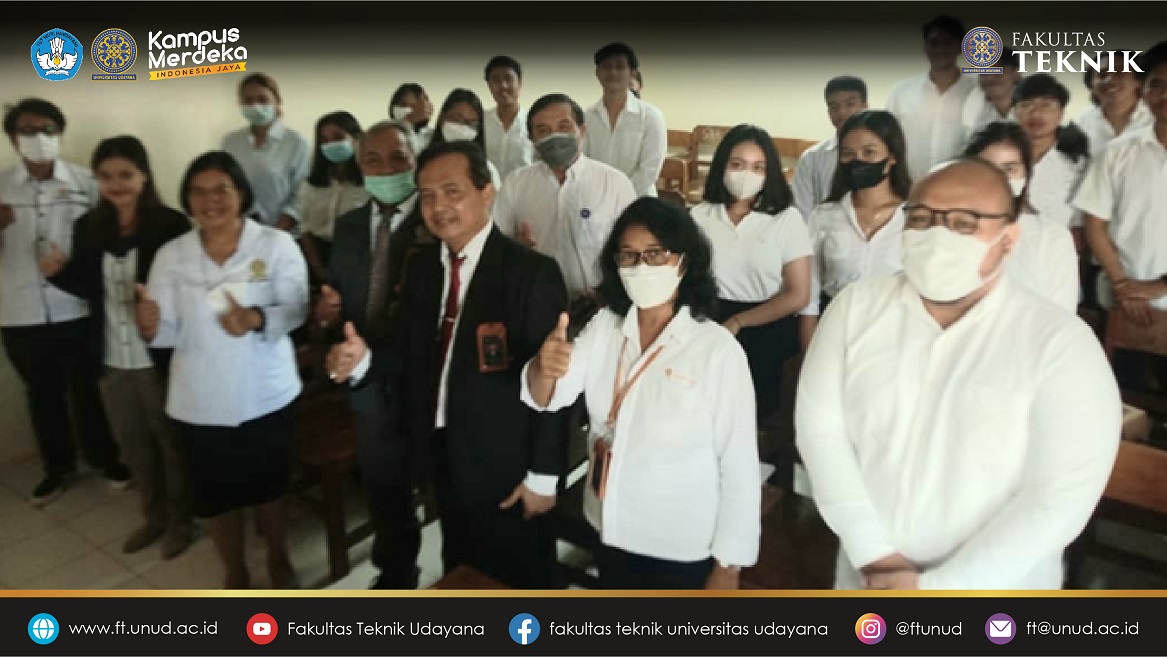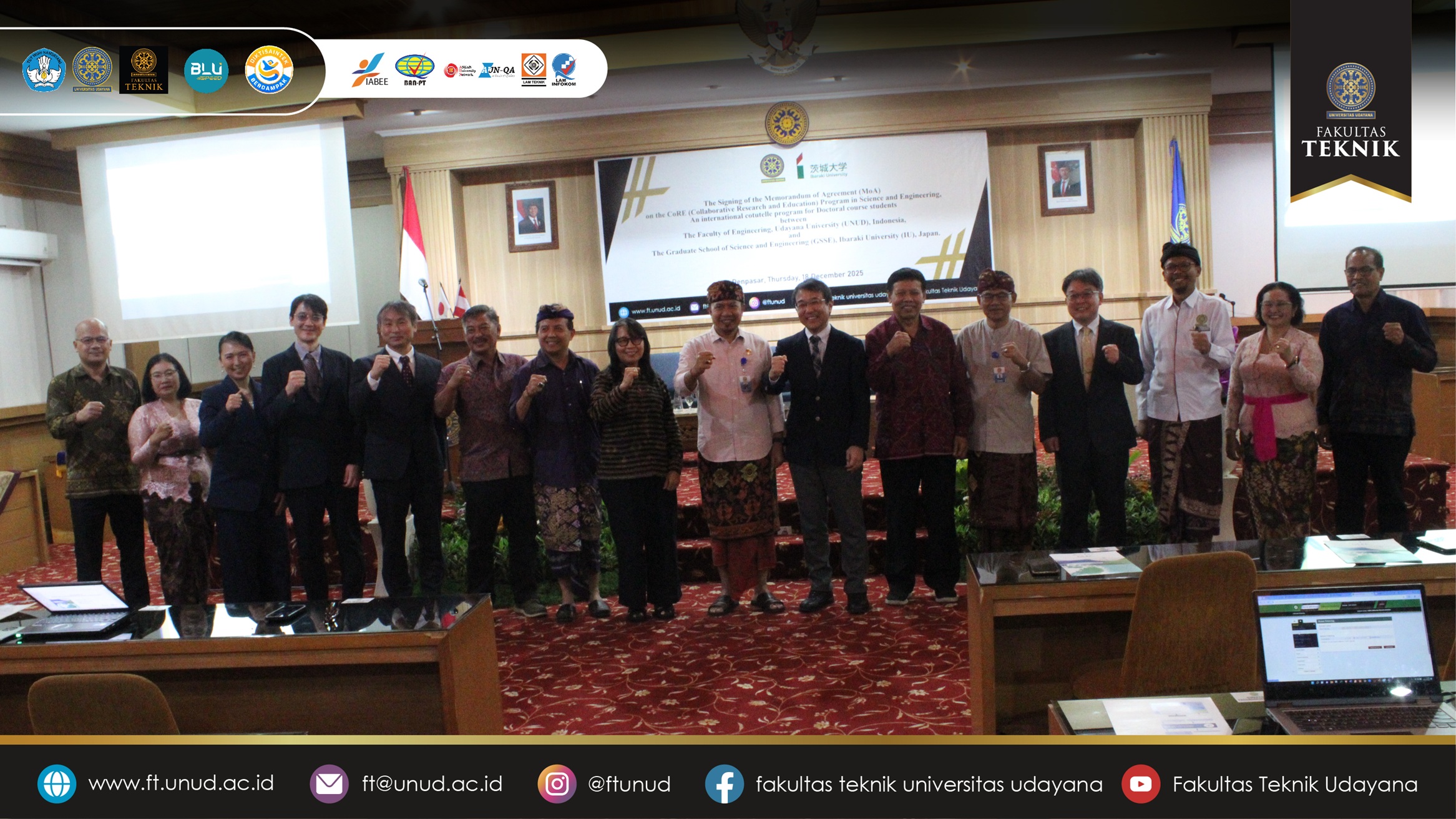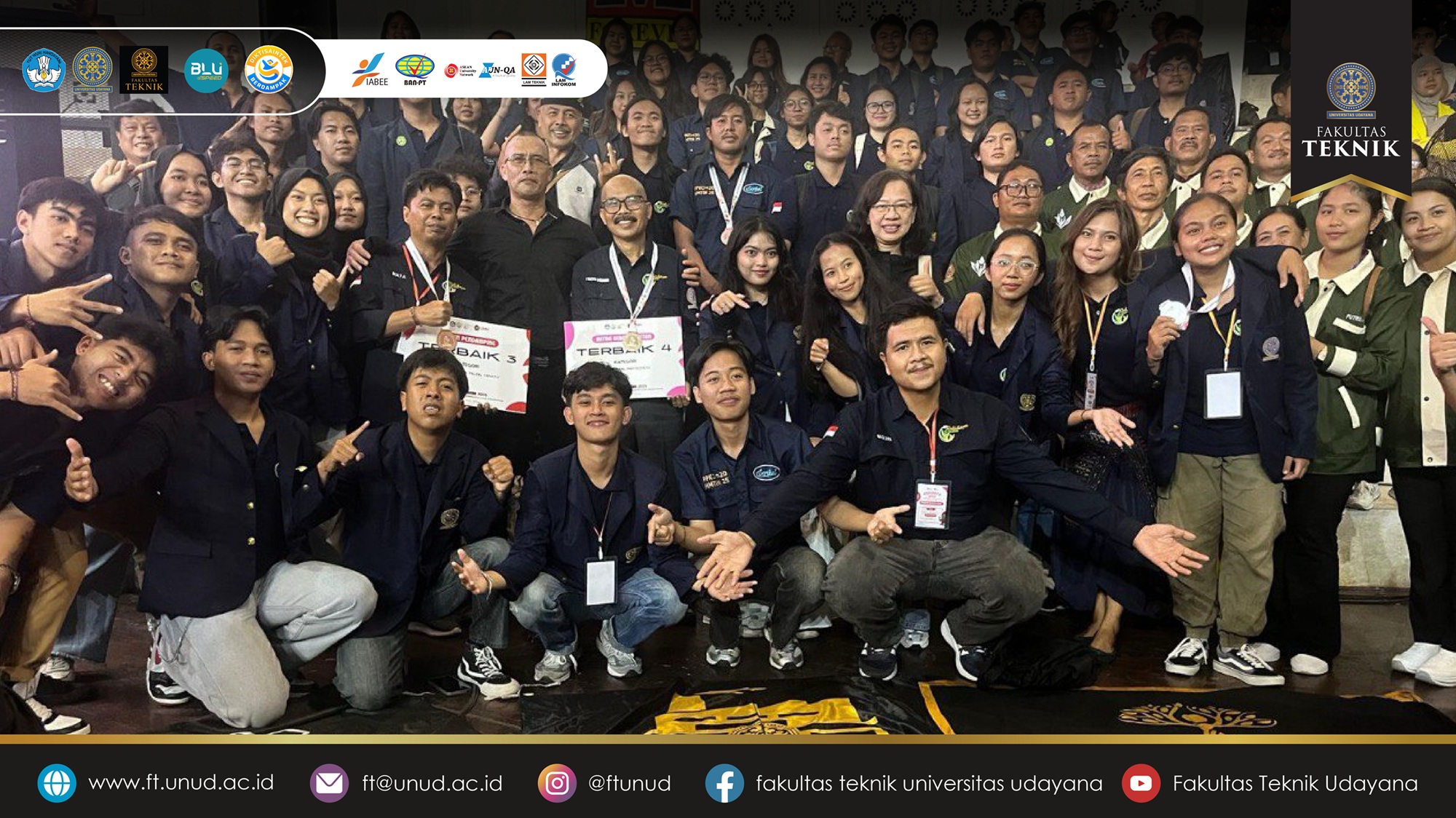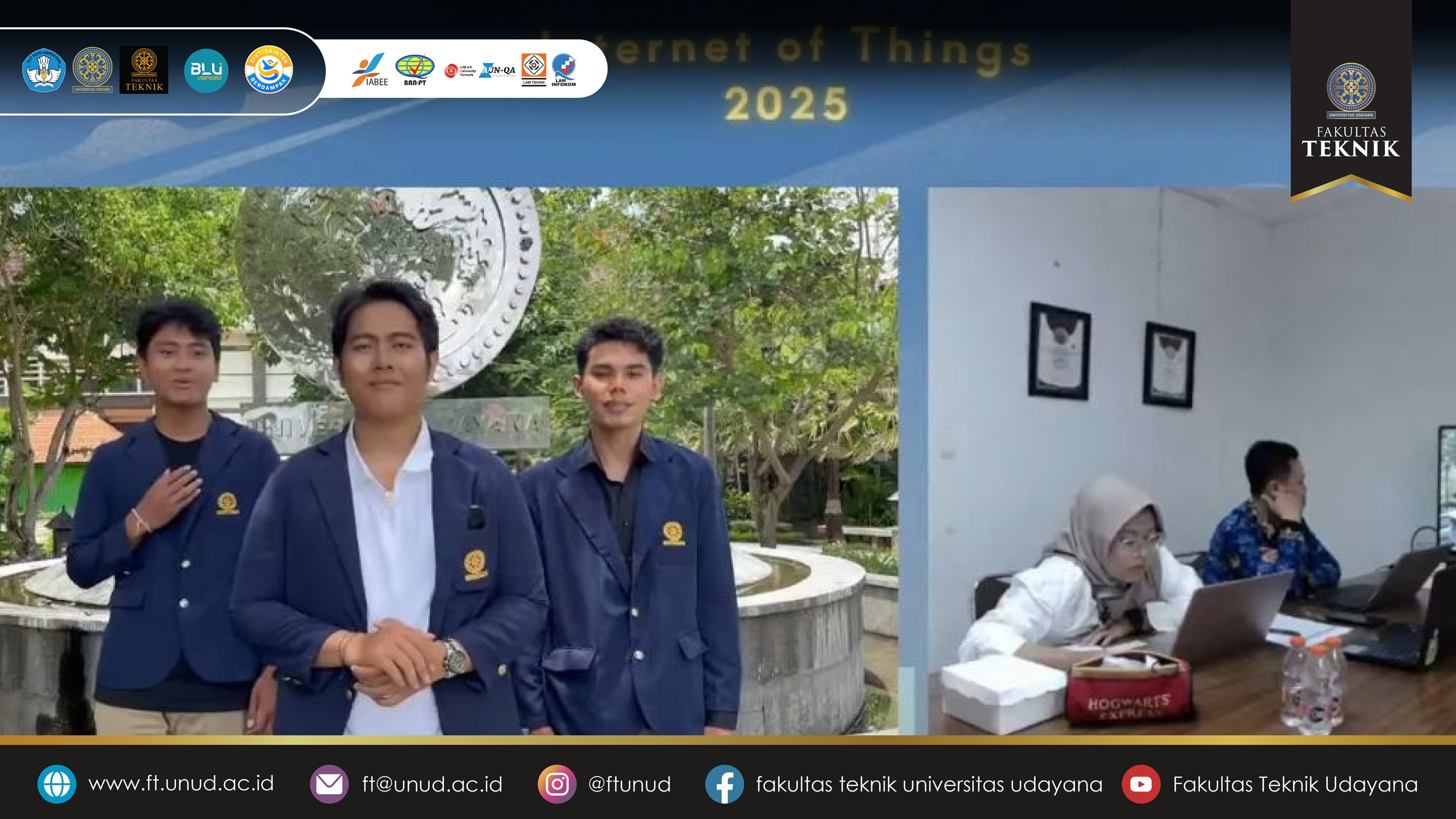SUPPORTING KKNT MBKM LPPM ENVIRONMENTAL ENGINEERING STUDY PROGRAM
On Monday, July 25, 2022, the Environmental Engineering Undergraduate Study Program carried out the Thematic Real Work Lecture Debriefing (KKNT) program for the Merdeka Learning Campus (MBKM) program. This activity was held in DO Room 2.2, Faculty of Engineering, Bukit Jimbaran Campus. The activity was attended by the Deputy Dean for Academic Affairs and Planning, Vice Dean for Student Affairs and Information, Coordinator of Environmental Engineering Study Programs, Coordinator of Civil Engineering Study Programs, Field Supervisors, Lecturers and Students participating in KKNT. A total of 15 students, consisting of 13 students of Environmental Engineering Study Program and 2 students of Civil Engineering, will take part in the KKNT implementation in the Odd Semester of 2022-2023.
Activities are filled with direction, delivery of material as well as training and scheduling. The KKNT materials provided include Village Drinking Water Supply System, Wastewater Management System, Solid Waste, and Time Management. Students participating in KKN will later carry out activities related to 3 main topics given according to the KKNT Guidelines, namely the Village Drinking Water Supply System, Wastewater and Solid Waste Management System. The determination of the topic of activities will be adjusted to the results of the survey and the identification of current conditions at the location of the KKNT implementation. The locations for KKNT activities include 3 villages in the Kintamani sub-district, Bangli Regency, namely Buahan Village, Kedisan Village and Batur Tengah Village, which were determined based on the direction of the Public Works Agency for Housing and Settlement Spatial Planning, Bangli Regency.
The activity began with a briefing, including the Material Briefing and KKNT Implementation by Prof. I Nyoman Suprapta Winaya, ST., MA.Sc., Ph.D. as Deputy Dean for Academic Affairs and Planning. The debriefing activity was continued by providing material related to the 3 main topics of KKNT. In general, the material discussed explains the objectives, scope and stages of activities which include identification of problems and analysis of village potential, implementation of studies on technical aspects, institutional aspects, social aspects, financial aspects, and environmental aspects, infrastructure development and innovation of infrastructure utilization for improvement. community economy, as well as the outputs of each activity topic.
The first material on the Village Drinking Water Supply System was delivered by Mrs. Ir. Kadek Diana Harmayani, ST. MT. PhD. as Lecturer and Coordinator of Environmental Engineering Study Program. The second material related to the Wastewater Management System was given by Mrs. Dr. eng. Ni Made Pertiwi Jaya, ST., M.Sc., M.Eng. The material related to solid waste was delivered by Mr. I Gede Andy Andika Parahita, S.Si., M.T. The last material discussing Time Management was given by Mr. Ngakan Gede Agung Khrisna Wiryananda, ST., M.Sc. which describes the importance of making a time schedule, managing time properly and appropriately and making a priority scale of activities.
Coordinator of Environmental Engineering Study Program, Mrs. Ir. Kadek Diana Harmayani, ST. MT. PhD. revealed that this activity is very good where students can go directly and apply the knowledge that has been obtained to solve problems related to the Village Drinking Water Supply System, Drinking Water Supply System or Solid Waste in the village, so that students are expected to be able to participate in activities well and meet the specified outcomes. . The output of the MBKM KKNT program is not only intended for the development of the village where the KKNT is located, it will also be used as an assessment of the credit conversion of the MBKM program.
Outputs generated from activities include villages having a medium-term village infrastructure plan, villages having social maps and maps of drinking water networks, waste generation data, villages having management bodies including AD and ART, forming business units that utilize the Village Drinking Water Supply System. in the village for topics, managing waste water from community business activities, as well as managing waste from community business activities. In addition, the output must be fulfilled in the form of final reports, articles in scientific journals, news in the mass media and videos of activities.




UDAYANA UNIVERSITY